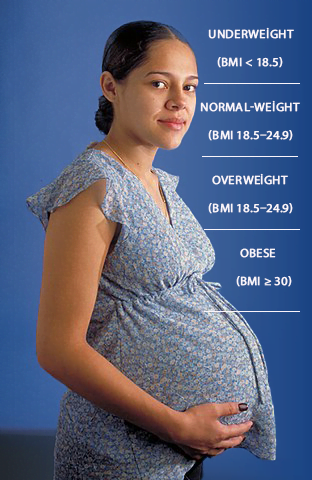- Mastering Pregnancy Weight Gain: The Essential Guide
- Why Monitoring Weight Gain is Crucial
- Key Factors
- The Risks of Improper Weight Gain
- Strategies for Achieving Optimal Pregnancy Weight Gain
- Practical Tips for Everyday Success
- Optimizing
Mastering Pregnancy Weight Gain: The Essential Guide
Pregnancy weight gain is an integral part of maternal and fetal health. A balanced approach to weight gain can significantly influence both the mother’s and baby’s well-being. By adhering to medical recommendations and adopting healthy lifestyle practices, complications such as gestational diabetes, preterm birth, or long-term obesity can be minimized. Tailored strategies for managing weight gain based on individual body mass index (BMI) categories ensure better outcomes.
Why Monitoring Weight Gain is Crucial
The Institute of Medicine (IOM) provides clear guidelines on optimal weight gain during pregnancy, tailored to BMI:
- Underweight women (BMI < 18.5): Gain 28–40 lbs (12.5–18 kg).
- Normal-weight women (BMI 18.5–24.9): Gain 25–35 lbs (11.5–16 kg).
- Overweight women (BMI 25–29.9): Gain 15–25 lbs (7–11.5 kg).
- Obese women (BMI ≥ 30): Gain 11–20 lbs (5–9 kg).
Adhering to these ranges lowers risks of preterm delivery, gestational hypertension, and postpartum weight retention.
Key Factors Influencing Pregnancy Weight Gain
Pre-Pregnancy BMI
Pre-pregnancy BMI is a critical determinant of healthy weight gain. Women with higher BMIs benefit from gaining less weight to avoid complications like hypertension and delivery challenges.
Diet and Nutrition
A nutrient-rich diet, featuring essential elements like folic acid, iron, calcium, and protein, supports healthy fetal development and maternal health. Limiting calorie-dense, nutrient-poor foods is equally important.
Physical Activity
Moderate physical activity, such as walking, swimming, or prenatal yoga, fosters healthy weight gain while promoting physical and mental well-being.
Mental Health and Stress Management
Stress can negatively impact eating behaviors and weight gain. Mindfulness techniques, therapy, or community support can help expectant mothers manage their emotional well-being effectively.
The Risks of Improper Weight Gain
Excessive Weight Gain
- Raises the likelihood of maternal obesity and related conditions.
- Increases the risk of cesarean delivery and infant macrosomia.
Inadequate Weight Gain
- Heightens the risk of preterm birth and low birth weight.
- May compromise the baby’s growth and development due to insufficient nutrients.
Strategies for Achieving Optimal Pregnancy Weight Gain
Collaborate with Healthcare Providers
Develop a personalized weight management plan based on your BMI and overall health.
Focus on Nutrition
Work with a dietitian to ensure meals meet pregnancy needs while avoiding excess caloric intake.
Monitor Progress
Track weight gain during regular prenatal visits to stay within recommended ranges.
Incorporate Physical Activity
Engage in safe, doctor-approved exercises to maintain physical fitness and regulate weight gain.
Build Awareness
Learn about the importance of appropriate weight gain and its benefits for long-term health.
Practical Tips for Everyday Success
- Stay Hydrated: Drinking water helps manage appetite and promotes overall health.
- Plan Balanced Meals: Preparing meals ahead reduces the temptation to make unhealthy choices.
- Mindful Eating: Listen to your hunger and fullness cues to avoid overeating.
- Create a Support Network: Rely on friends, family, or support groups for encouragement and accountability.
Optimizing Pregnancy Weight Gain for a Bright Future
Maintaining appropriate pregnancy weight gain is a cornerstone of a healthy pregnancy. By aligning with recommended guidelines, staying physically active, eating a balanced diet, and seeking professional advice, mothers can ensure a healthy pregnancy and postpartum recovery. Every pregnancy journey is unique, and consulting healthcare professionals to personalize strategies is key to success.
The following post may interest you
Optimal Nutrition During Pregnancy
Soures
The pattern of maternal weight gain in women with good gravidity outcomes:
https://ajph.aphapublications.org/doi/abs/10.2105/AJPH.87.12.1984
Excess Gravidity Weight Gain and Long-Term Obesity: One Decade Later:
https://www.sciencedirect.com/science/article/abs/pii/S0029784402021257
Recommendations for Weight Gain During Gravidity in the Context of the Obesity Epidemic:
Correlates of Absolute and Excessive Weight Gain During Gravidity:
https://www.liebertpub.com/doi/abs/10.1089/jwh.2008.1275
Prepregnancy Body Mass Index and Gravidity Weight Gain: Associations With Preterm Delivery:
https://www.sciencedirect.com/science/article/abs/pii/S0029784400008838

